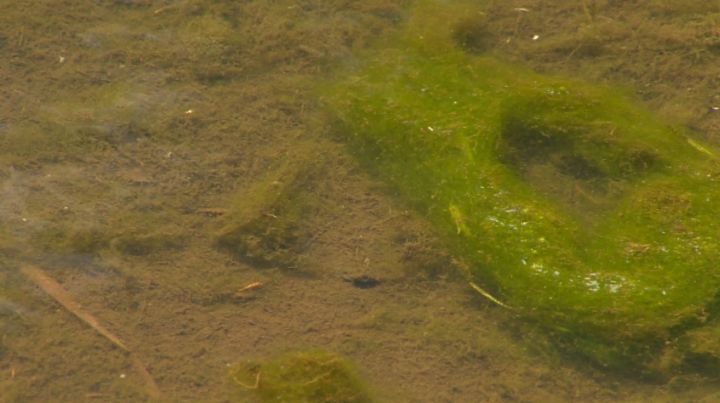The Halifax Regional Municipality is advising residents to avoid swimming in Sandy Lake in Bedford due to the possible presence of blue-green algae bloom.

Sandy Lake Beach, which is supervised, will also be closed to swimming until further notice.
READ MORE: Swimmers urged to take precautions with blue-green algae warning in effect along Saint John River
HRM said in a press release that blue-green algae (cyanobacteria) naturally occurs in freshwater environments and may become visible when weather conditions are calm.
“These organisms can multiply rapidly during the summer, leading to extensive growth called a bloom,” it wrote.

Get breaking National news
“Some types of blue-green algae produce toxins during blooms and when these blooms decay, the toxins may be released into the water, posing a risk to people and pets,” it added.
READ MORE: N.B. vet suspects blue-green algae in dog death, urges caution around water
Lake users are encouraged to take the following precautions:
- Avoid water contact. If contact occurs, wash with tap water as soon as possible.
- Do not swim or wade (or allow your pets to swim or wade) in any areas where blue-green algae is visible or in areas where a risk advisory has been issued.
- Avoid consuming water from this lake.
- Avoid consuming fish that has come from this lake.
According to the HRM, people who come in contact with blue-green algae or who ingest water containing it may experience skin irritation, rash, sore throat, sore red eyes, swollen lips, fever, nausea and vomiting and/or diarrhea.
READ MORE: High bacteria count closes Birch Cove Beach to swimming
Children and immune-compromised individuals are also at a higher risk.
HRM said as algae blooms die and decay, toxins are released. Unsafe toxin levels can remain in the water even after the bloom is gone.
Once blooms have disappeared and post-bloom test results have been received, an update will be provided by HRM.








Comments